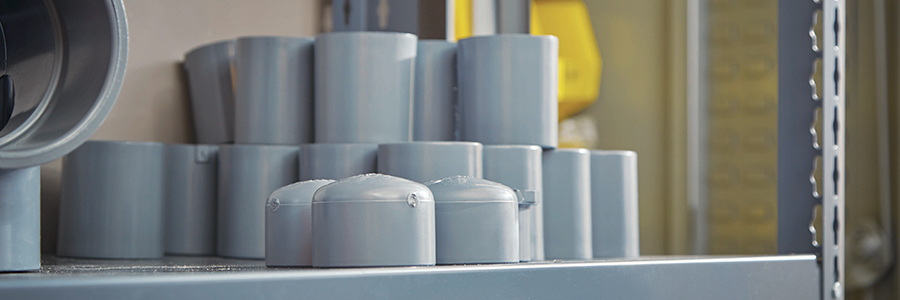Impact Strength – One of Many Strengths for Corzan® CPVC Pipe
The demanding applications for Corzan® CPVC pipe require specific performance characteristics from the pipe once placed in a plumbing or HVAC system. But before pipe goes into service, it must be stored, handled and installed without breaking, and it must possess what is known as impact strength or impact resistance.
The measure of a material’s stiffness and ability to deform when a force is applied is called its modulus of elasticity. All pipe materials have it, but the modulus of elasticity for Corzan CPVC is very low, giving it – and thermoplastics in general – a distinct advantage over metal piping systems. It means Corzan Piping Systems are flexible enough to absorb the shock of typical non-severe impacts, bouncing back into shape without structural damage to the material or to its connecting system. Such impacts could result from being dropped during unloading or on the job site, throwing the pipe or having an object drop onto the pipe.
Depending on the type and intensity of the impact, metal piping can be more likely to dent or crease, which will affect fluid flow in service. In addition, small cracks can form, weakening wall strength, limiting pressure capabilities and increasing corrosion concerns. Some of the shock of the impact could be transferred to the adjoining seams and joints.
But not all CPVC compound is created equal either. Corzan CPVC is made of proprietary formulations for pipe performance properties and is not identical to generic CPVC in terms of its impact resistance or a number of other features. Testing according to ASTM D2444, “Standard Practice for Determination of the Impact Resistance of Thermoplastic Pipe and Fittings by Means of a Tup (Falling Weight),” this impact test shows Corzan CPVC resisting 300 foot-pounds of impact energy without failing. The generic CPVC sample, however, is brittle to the point that it shatters at lower energy levels.
The specific formulation of the compound is necessary to achieve impact resistance, but it is not the only factor. Equally important is the quality of the processing of the CPVC compound into pipe. Qualified manufacturers of Corzan CPVC pipe conduct two dedicated operations to impart full performance properties:
- Plasticizing the compound through extrusion
- Die tooling to form a specific Schedule 80 pipe size
In the first process, a twin-screw extruder is typically equipped with a specific screw geometry for plasticizing the compound that accounts for the heat and shear sensitivity of CPVC resin. In the second, the pipe die tooling is designed to accommodate the high viscosity flow characteristics of the compound once it is plasticized to reduce stress and flow shear when forming the pipe in the die-head. Both the extruder and the tooling remain proportional to the size of pipe being manufactured, ranging from 1/4” to 24” depending on the application.
Lubrizol provides support for our pipe manufacturing partners to apply the right compound and processing information for a given market application. This assures these two parts of the process are done effectively and the pipe achieves its full performance properties. It’s just another reason why you can trust Corzan Piping Systems for hot and cold water service, even before it’s in service. To learn more, schedule an appointment with a Lubrizol expert.


